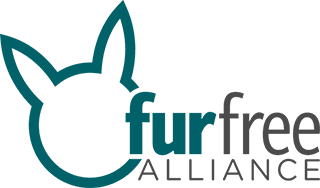
Bulgarian Citizens Demand Ban on Fur Farming
BULGARIA, JULY 2018 – Exactly 51 234 signatures were submitted to the Bulgarian parliament by the National Citizens’ Initiative, which seeks to bring about a ban on fur farming on the country’s territory.
On June 22, 51 234 signatures in total were submitted to the national parliament, along with a proposition for an amendment to the current legislation. The goal of this amendment is to “forbid the raising, killing and trade of animals for fur production in the Republic of Bulgaria”.
The Reasons
Among them are the deteriorating public perception of fur products and their process of production, the ethical and moral issues, the suffering of animals, the alarming risk for public health and for the livelihood of the local populace, the ensuing social problems, immense pollution, and a staggering threat to biodiversity.
Popular Support
All signatures were collected within the legal bounds of the National Citizens’ Initiative. The Initiative started on March 25th and was held in accordance with all relevant legislation. As such, 34 995 signatures were collected on paper from across the country, despite the stringent requirement for submitting one’s personal data along with one’s signature. In addition, 16 098 signatures were collected in an online petition on the platform change.org. 181 children also insisted on signing the Citizens’ Initiative, even though, legally, they do not have the right to take part in it.
During the last few months, an informational campaign about the influence of fur farms also took place in the country. Citizens fear that, despite the presently small number of farms in Bulgaria (officially, 3), the rate at which they are expanding is highly alarming. Within just two years, one of the mink farms doubled its declared capacity, and, as of data from 2017, 120 000 American minks are killed there every year. Worse still, the goal of this same farm is to eventually reach an annual capacity of 400 000.
In August last year, an attempt was made to change national legislation to improve conditions for the industry, but after numerous civil protests and public upheaval, the bill was withdrawn in January. The continent-wide enactment of bans one after the other in Europe is one more reason why Bulgarian citizens want to see fur farming banned in their own country as well. The business migrates every few years to countries in which such bans have not yet been adopted, as one nation after another refuses to take part in the barbarity any longer. Should Bulgaria fail to introduce this ban, it would therefore soon become unavoidable that hundreds of fur farms previously located elsewhere in Europe now pop up on Bulgarian territory, and with them – all the damage and severe risks to animal welfare, nature, and the local populace.
The production of fur is torture for animals, it is a cruel industry, and one that is entirely unnecessary in the modern, 21st century.
The National Initiative’s organizers:
„We collected signatures in accordance with the law: only within the allotted three-month period. The requirements were such that submitting personal information, such as one’s citizen number, address etc., is mandatory to sign. Despite the cumbersome legal procedure and all the hurdles around the necessity to handle personal information, we believe that the signatures we’ve collected thus far are more than enough to clearly show the strong public opinion and the will of the people. No one, after acquainting oneself with the problem at hand, can remain indifferent to the plight of the animals, and to the catastrophic consequences for the environment and the lives of locals. It is precisely these facts that must be seriously addressed by the politicians, because these fur farms are a ticking ecological time-bomb, and indescribable agony for the animals. Numerous countries have seen reason in the past years and have promptly passed bans, even as, in some cases, fur farms have existed on their own territory for decades beforehand.”
“This petition is one more democratic litmus test for the institutions and those in power, with which we will see how capable they are of listening to the voice of the people. Whether they choose the principles of non-violence, environmental protection and a sustainable future, or fast profits, suffering, death and devastation, all depends on them now, and on their willingness to inform themselves about the issue well enough.”
In Bulgaria, since 2013 three fur farms have been operational (officially). In 2017 alone, more than 100 000 minks were killed in the country. Since 2013, the yearly death tolls have been increasing exponentially. Despite the fact that the largest of the three has a declared capacity of 400 000 minks per year, no official evaluation of their environmental impact has been performed on any of them.
Alerts from concerned citizens about minks being noticed in the wild and in the villages around the farms have been a constant trend these few years. The mere existence of these farms is even in contravention of already existing legislation: The requirements set forth in the Biodiversity-Protection Law have not been met, and nor have those of a number of other ordinances and directives.









